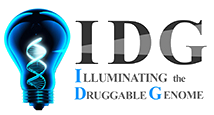Target result:
| Erythropoietin |
|
Drug results: 10
| peginesatide | an erythropoiesis stimulating agent | |
| epoetin alfa | Glycoprotein hormone, secreted chiefly by the KIDNEY in the adult and the LIVER in the FETUS, that acts on erythroid stem cells of the BONE MARROW to stimulate proliferation and differentiation. | |
| epoetin theta | ||
| darbepoetin alfa | acts exactly like the natural erythropoietin made by the body to stimulate red blood cell production, but it is very slightly different in its structure | |
| epoetin beta | A recombinant therapeutic agent that is chemically identical to or similar to the endogenous cytokine human erythropoietin (EPO). Produced primarily by cells of the peritubular capillary endothelium of the kidney in response to hypoxia, circulating EPO binds to EPO receptors on the surface of committed erythroid progenitors in the bone marrow resulting in their replication and maturation into functional erythrocytes. | |
| methoxy polyethylene glycol-epoetin beta | A pegylated form of recombinant human erythropoietin, a glycosylated protein naturally produced in the kidney that stimulates erythrocyte production in the bone marrow. Methoxypolyethylene glycol epoetin beta may reverse anemias induced by cancer therapy | |
| epoetin zeta | a copy of human erythropoietin and works in exactly the same way as the natural hormone to stimulate red blood cell production | |
| vadadustat | Vadadustat is an oral hypoxia-inducible factor prolyl hydroxylase (HIF-PH) inhibitor induces endogenous erythropoietin synthesis and enhances iron mobilization. |
|
| molidustat | Molidustat (BAY 85–3934) is a novel, orally bioavailable HIF-PH inhibitor that mimics hypoxia by stabilizing HIF-a subunits. Molidustat inhibits HIF-PH, allowing the accumulation of HIF, which then translocates to the nucleus where it activates the transcription of erythropoietin (EPO) and other hypoxia-inducible genes, thereby increasing endogenous EPO levels and formation of the red blood cell. |
|
| daprodustat | Daprodustat is a small molecule inhibitor of hypoxia-inducible factor prolyl hydroxylase (PHD) developed for the treatment of anaemia in patients with chronic kidney disease (CKD). Inhibition of PHD prevents degradation of hypoxia-inducible factor (HIF), leading to the production of erythropoietin and subsequent induction of erythropoiesis. |
|



